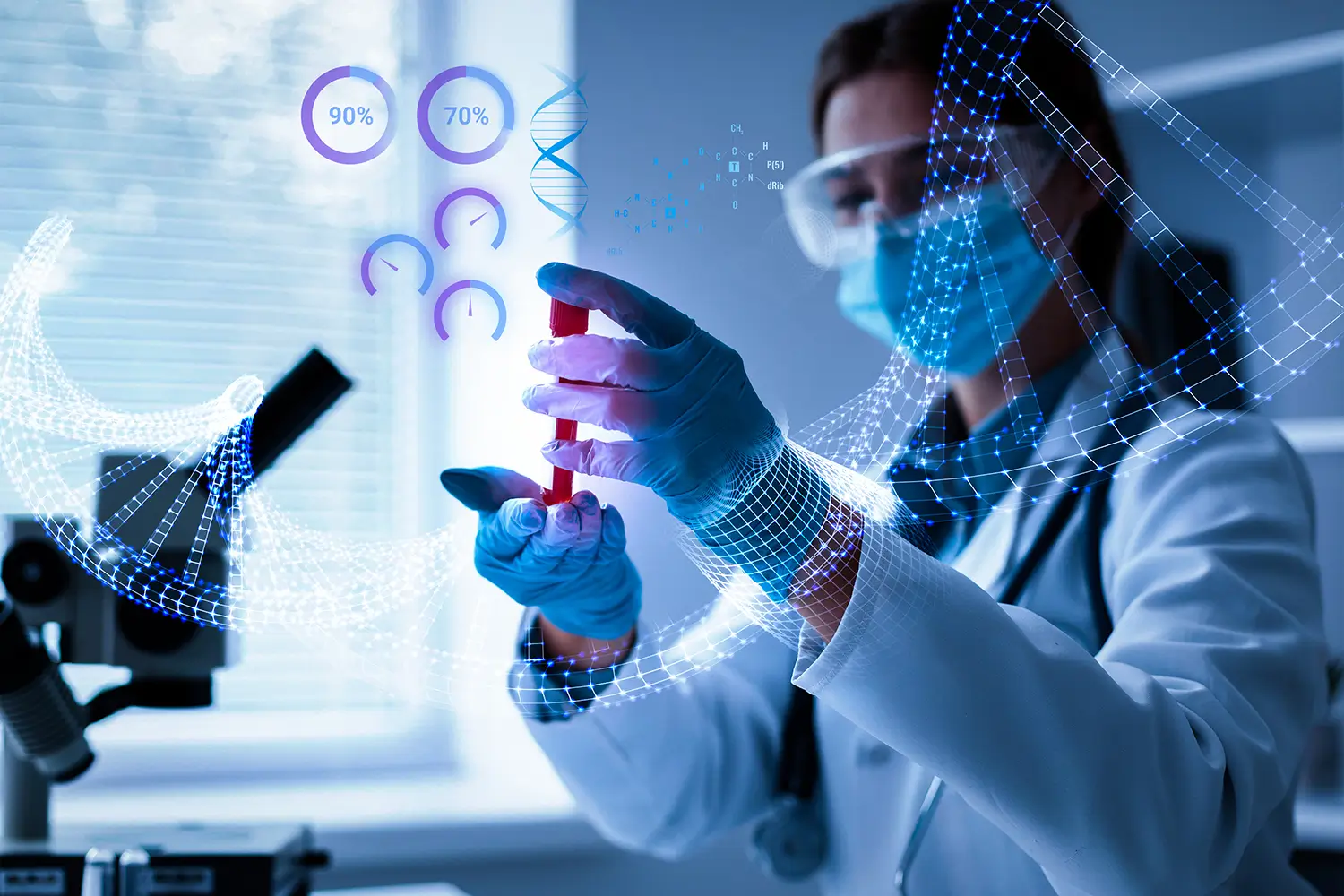The field of health and medicine is undergoing rapid transformation. From breakthroughs in biotechnology to digital health innovations, modern medicine is redefining how we prevent, diagnose, and treat disease. With growing global populations, increased life expectancy, and the rise of chronic conditions, healthcare systems are under pressure to provide effective, efficient, and patient-centered care.
This article explores the latest trends, technologies, and challenges in health and medicine, highlighting the future direction of healthcare and its impact on patients worldwide.
Precision Medicine: Tailoring Treatment to the Individual
Precision medicine, also called personalized medicine, represents a shift from a “one-size-fits-all” approach to a model that considers an individual’s genetics, environment, and lifestyle. By understanding the unique biological makeup of each patient, healthcare providers can deliver more effective treatments with fewer side effects.
Key aspects of precision medicine include:
-
Genetic testing: Identifying genetic variations that influence disease risk and drug response.
-
Targeted therapies: Developing treatments designed for specific genetic profiles.
-
Early detection and prevention: Using biomarkers to detect conditions before symptoms appear.
For instance, in oncology, precision medicine allows oncologists to choose therapies that target the exact mutations driving a patient’s tumor, improving survival rates and quality of life.
Telemedicine and Digital Health
The COVID-19 pandemic accelerated the adoption of telemedicine, making virtual healthcare an integral part of modern medicine. Telehealth offers convenience, reduces travel time, and expands access to care for patients in rural or underserved areas.
Digital health innovations include:
-
Virtual consultations for routine checkups and follow-ups.
-
Remote patient monitoring using wearable devices that track heart rate, blood pressure, or glucose levels.
-
Mobile health apps to manage chronic conditions, remind patients to take medications, or provide mental health support.
-
AI-driven diagnostic tools that analyze medical images and patient data for faster and more accurate assessments.
Telemedicine not only improves access to care but also enables proactive disease management and reduces healthcare system strain.

Breakthroughs in Biotechnology
Biotechnology continues to push the boundaries of what is possible in medicine. Innovations in genetics, immunology, and regenerative medicine are transforming patient care.
Recent advancements include:
-
CRISPR gene editing: Offering potential cures for genetic disorders by precisely modifying DNA.
-
Stem cell therapies: Used to regenerate damaged tissues and treat conditions like spinal injuries and degenerative diseases.
-
Immunotherapy: Harnessing the body’s immune system to fight cancers and autoimmune disorders.
-
3D bioprinting: Creating tissue and organ models for research, drug testing, and eventually transplantation.
These developments are moving medicine from symptomatic treatment to potential cures for previously untreatable conditions.
Preventive Healthcare: Reducing the Burden of Disease
Preventive healthcare emphasizes early detection, healthy lifestyle choices, and risk reduction. By focusing on prevention, healthcare systems can improve population health, reduce costs, and enhance patient quality of life.
Preventive strategies include:
-
Routine screenings for conditions like cancer, diabetes, and hypertension.
-
Vaccination programs to prevent infectious diseases.
-
Lifestyle interventions promoting nutrition, exercise, and mental well-being.
-
Public health campaigns to raise awareness about chronic disease management.
Investing in prevention reduces the burden of chronic diseases, which are among the leading causes of death globally.
Mental Health: A Growing Focus
Mental health has emerged as a critical component of overall health. Stress, anxiety, depression, and other mental health disorders have significant social, economic, and medical implications.
Innovations in mental health care include:
-
Teletherapy and online counseling, improving accessibility.
-
Digital therapeutics, including apps that help manage stress, insomnia, or addiction.
-
Integration of mental and physical health services, recognizing their interdependence.
-
Mindfulness and stress reduction programs, which are increasingly incorporated into workplaces and schools.
Addressing mental health alongside physical health is crucial for holistic patient care.
Artificial Intelligence and Data in Medicine
Artificial intelligence (AI) and big data are revolutionizing diagnostics, treatment planning, and research. AI algorithms can analyze vast datasets, identify patterns, and assist healthcare providers in making informed decisions.
Applications include:
-
Medical imaging: AI detects abnormalities in X-rays, MRIs, and CT scans faster than traditional methods.
-
Predictive analytics: Anticipating disease outbreaks or identifying high-risk patients.
-
Drug discovery: Accelerating the development of new medications by simulating molecular interactions.
-
Personalized treatment planning: Combining patient data with predictive models for optimized care.
By leveraging AI, healthcare systems can improve efficiency, accuracy, and patient outcomes.
Challenges in Modern Healthcare
Despite these advancements, healthcare faces ongoing challenges:
-
Rising costs: Advanced treatments and technologies are expensive, limiting access for some patients.
-
Healthcare inequality: Rural and low-income populations often face barriers to care.
-
Data privacy and cybersecurity: Protecting sensitive medical data is increasingly complex.
-
Workforce shortages: Increasing demand for services strains healthcare professionals and infrastructure.
Addressing these challenges requires collaboration among policymakers, providers, technology developers, and communities.
The Role of Public Health and Education
Public health initiatives and education are essential to improving health outcomes. Empowering individuals with knowledge about disease prevention, healthy habits, and available medical services fosters a healthier society.
Effective strategies include:
-
School programs teaching children about nutrition, hygiene, and exercise.
-
Community outreach for vaccination, screenings, and wellness programs.
-
Health literacy campaigns helping patients understand medications and treatment plans.
-
Promoting lifestyle interventions to reduce obesity, smoking, and substance abuse.
Educated and informed communities contribute to reduced healthcare costs and better overall population health.
Future Trends in Health and Medicine
The future of healthcare is patient-centered, technology-driven, and preventative. Emerging trends include:
-
Expanded use of precision medicine to tailor treatments to individual patients.
-
Integration of AI and digital health for diagnostics, monitoring, and patient engagement.
-
Telemedicine as a standard of care, particularly for chronic disease management.
-
Sustainable healthcare practices reducing environmental impact and promoting wellness.
-
Collaborative care models combining physical, mental, and social health approaches.
These trends promise a healthcare system that is more effective, equitable, and responsive to patient needs.
Conclusion
Health and medicine are rapidly evolving, driven by innovation, technology, and patient-centered care. From precision medicine and biotechnology breakthroughs to telehealth, AI, and preventive strategies, the healthcare landscape is becoming more efficient and accessible. Mental health, education, and public health awareness are critical for holistic well-being, while addressing challenges like inequality and rising costs remains essential.
The future of healthcare lies in combining cutting-edge technology with compassionate, personalized care. By embracing innovation and prioritizing prevention, society can achieve better health outcomes, reduce the burden of disease, and enhance the quality of life for people around the world.


Leave a Reply